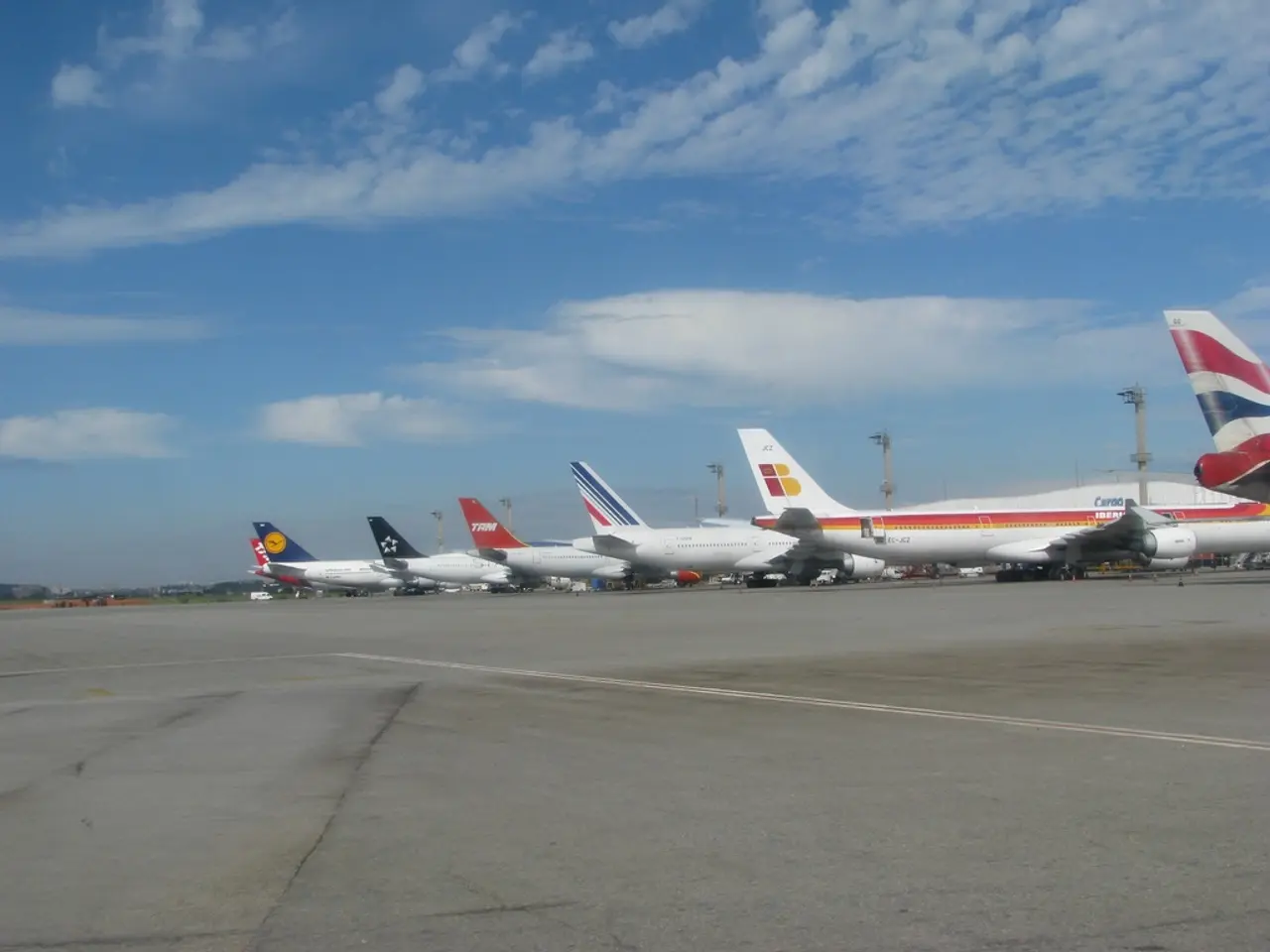Forced arbitration ordered by Labour Minister, reinstating work for employees
Minister of Employment Patty Hajdu has stepped in to end the ongoing strike by Air Canada's flight attendants, ordering the airline and its staff to resume operations. The decision, which has been met with criticism from the union representing the flight attendants, comes after approximately 130,000 customers were affected for each day of suspension.
The Canadian Union of Public Employees (CUPE), which represents over 10,000 Air Canada flight attendants, had initiated the strike at 1 a.m. on Saturday due to their inability to reach a last-minute agreement with the airline. In response, Air Canada implemented a lockout of its unionized flight attendants at 1:30 a.m. on Saturday, leading to the cancellation of all Air Canada and Air Canada Rouge flights.
The Liberal government has invoked Section 107 of the Canada Labour Code, a provision that allows the Minister of Labour to impose binding arbitration and effectively end strikes or lockouts. This move has been criticized by CUPE, with its president, Wesley Lesosky, accusing the government of violating workers' rights by giving Air Canada " countless hours of unpaid work from underpaid flight attendants while the company rakes in astronomical profits and pays out extraordinary remuneration to its executives."
The use of Section 107 has sparked controversy in the past, particularly in the airline industry. In 2025, it was invoked during the Air Canada Flight Attendants' strike, a move that was heavily criticized by unions and labor advocates. The provision has also been used in other federal industries, such as Canadian railway workers, Canada Post workers, West Coast port workers, and WestJet mechanics.
Calls for a repeal of Section 107 have been growing, with unions and labor rights groups arguing that it fosters bad-faith bargaining, weakens collective bargaining rights, and contradicts constitutional protections. David Doorey, a labour law professor at York University, states that the government's use of Section 107 "very certainly" violates the freedom of association guaranteed by the Charter.
However, the Minister of Employment, Patty Hajdu, estimates that Air Canada's operations could resume within five to ten days. The Canadian Industrial Relations Board (CIRB) will determine a schedule for the resumption of Air Canada flights within the next 24 to 48 hours. Picket lines will be deployed at Canadian airports, including Montreal, Toronto, Calgary, and Vancouver, as well as Halifax, Ottawa, and Winnipeg airports.
The Conservative labour critic, Kyle Seeback, has urged the government to pass the Fairness for Airline Workers Act to ensure workers are compensated for the work they do before, during, and after a flight. Despite the ongoing controversy, it appears that the federal government is committed to resolving the dispute and restoring normal operations for Air Canada.
References:
[1] Bacchi, N. (2021). Back to Work: The Use of Back-to-Work Legislation in Canada. Canadian Centre for Policy Alternatives.
[2] Canadian Labour Congress. (2025). The Air Canada Flight Attendants' Strike: A Case Study in the Misuse of Back-to-Work Legislation.
[3] Canadian Labour Congress. (2019). The Use of Back-to-Work Legislation in Canada: A Threat to Workers' Rights.
[4] Doorey, D. (2018). The Use of Back-to-Work Legislation in Canada: A Violation of Workers' Rights and Constitutional Protections. York University.
The Canadian Union of Public Employees (CUPE) has criticized the Liberal government's use of Section 107, accusing it of violating workers' rights and fostering bad-faith bargaining. This policy-and-legislation move, heavily criticized in past general-news events involving airline industries, contradicts constitutional protections, according to labor law professor David Doorey.
The Conservative labour critic, Kyle Seeback, has advocated for the passage of the Fairness for Airline Workers Act, aiming to ensure fair compensation for workers during disputes like this one, rooted in French politics.







